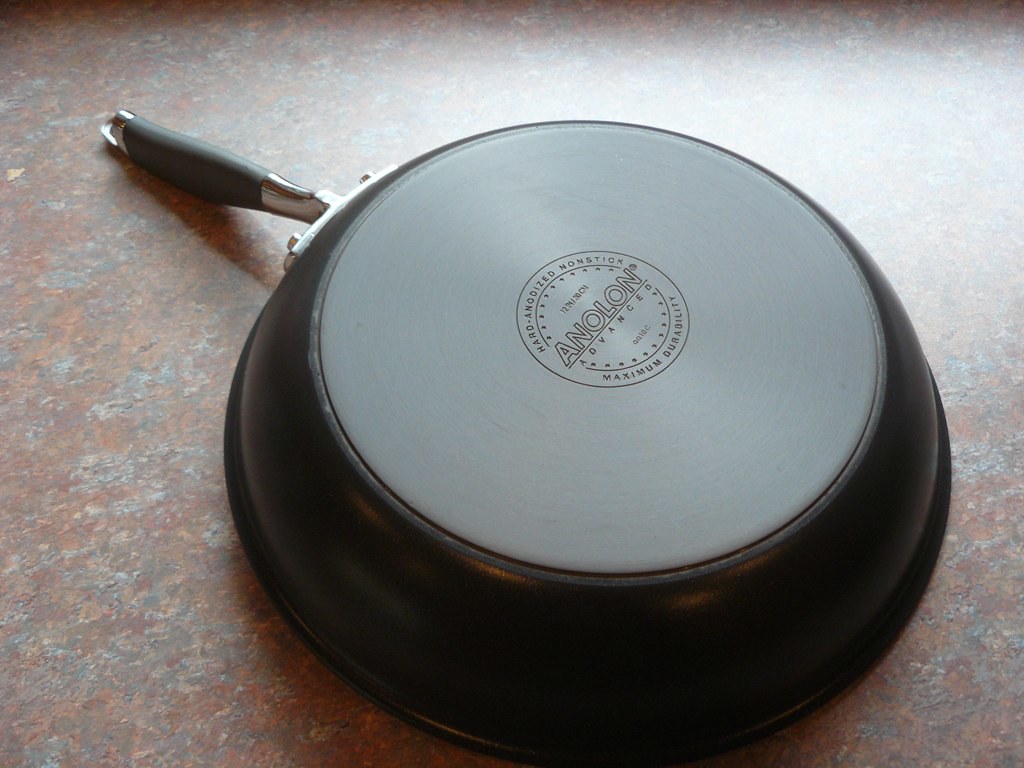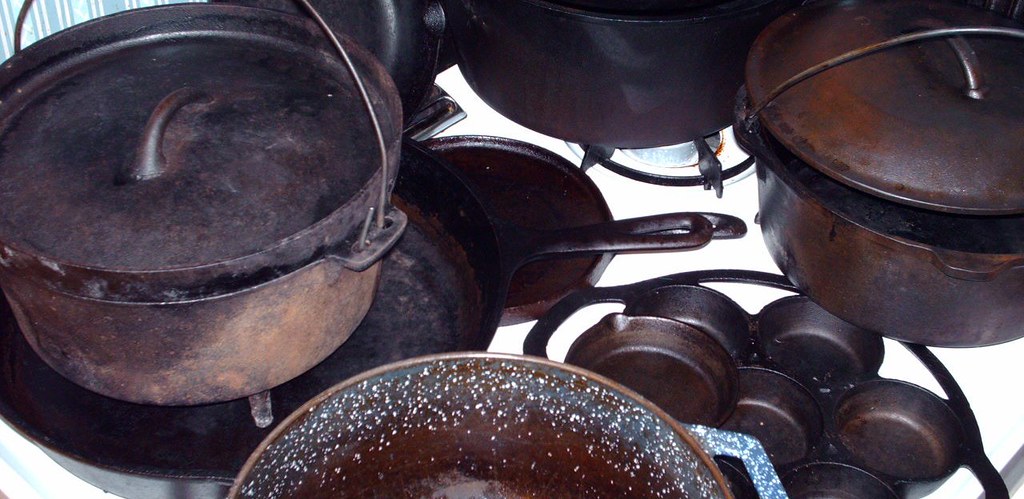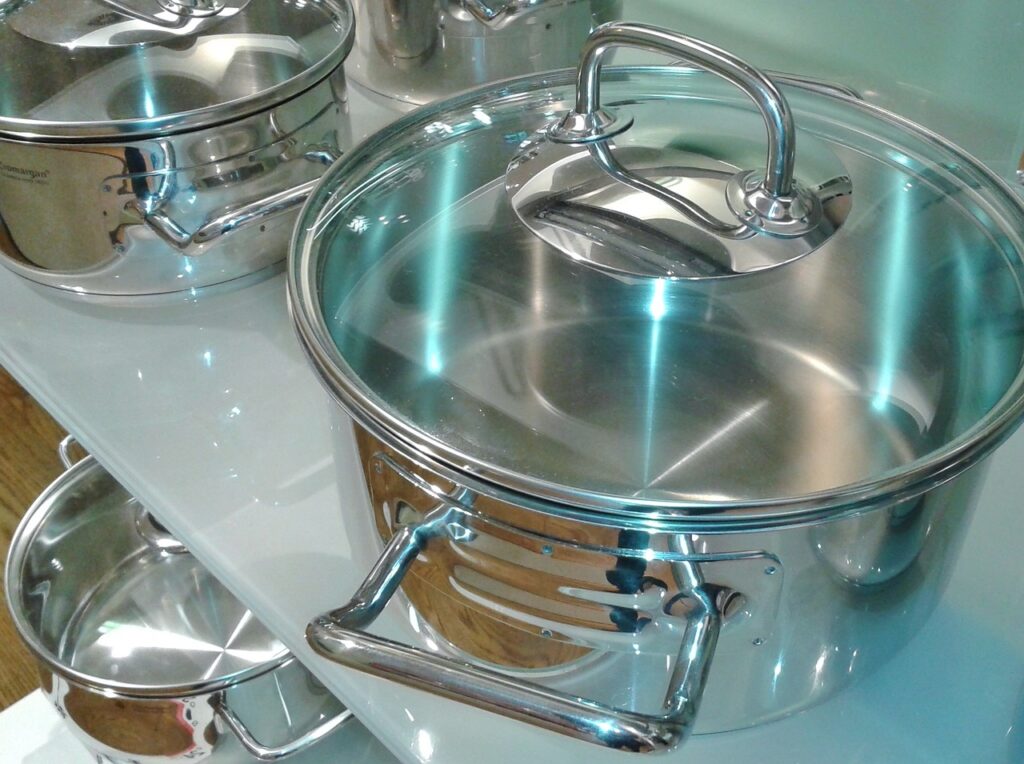Are you aware of the potential risks associated with your cookware?
If you’re in California, Proposition 65 requires manufacturers to warn consumers about exposure to harmful chemicals.
In this article, we’ll explore the implications of Proposition 65 on cookware, including common chemicals found and compliance requirements.
Stay informed and make safer choices for your kitchen.
Key Takeaways
- California Proposition 65 requires businesses to provide warnings about exposure to harmful chemicals in cookware.
- Common chemicals found in cookware, such as PFOA and BPA, are known to cause health issues and are subject to Proposition 65 regulations.
- Cookware manufacturers must comply with labeling and testing requirements to ensure their products do not contain excessive quantities of listed chemicals.
- Retailers also have compliance requirements, including regular testing, accurate record-keeping, and placing clear warning labels on products with listed chemicals.
What Is California Proposition 65
You should know what California Proposition 65 is. It’s a law that requires businesses to provide warnings to consumers about significant exposures to chemicals that can cause cancer, birth defects, or other reproductive harm.
When it comes to cookware, it’s important to understand Proposition 65 warnings. Common chemicals found in cookware, such as lead and cadmium, may have implications under Proposition 65.
Cookware manufacturers must ensure compliance with Proposition 65 by meeting certain requirements for labeling and testing. This has an impact on product labeling and legal implications for manufacturers.
Cookware retailers also have compliance requirements under Proposition 65, and they play a role in consumer awareness and education.
Enforcement actions and cookware recalls have been taken to ensure compliance.
Consumers can navigate Proposition 65 by considering alternatives to regulated cookware and staying informed about the latest safety recalls.

Understanding Proposition 65 Warnings on Cookware
When purchasing kitchenware, it’s important to be aware of and understand the warnings associated with Proposition 65.
Proposition 65 is a California law that requires businesses to provide a clear and reasonable warning before exposing consumers to chemicals known to cause cancer or reproductive harm.
This law also applies to cookware, as some materials used in their manufacturing may contain chemicals that pose health risks. To comply with the proposition 65 warning requirements, cookware manufacturers must label their products if they contain any of the chemicals listed by the state.
By understanding these warnings, you can make informed decisions about the cookware you purchase, ensuring that you minimize your exposure to potentially harmful chemicals while cooking.
Always read and heed the warnings to protect your health and well-being.
Common Chemicals Found in Cookware and Their Proposition 65 Implications
Understanding the common chemicals found in cookware is crucial in order to be aware of their implications under Proposition 65. Proposition 65 chemicals are those known to cause cancer, birth defects, or other reproductive harm.
When it comes to cookware, there are a few chemicals to watch out for. One of the most common is perfluorooctanoic acid (PFOA), which is used in non-stick coatings. PFOA has been linked to various health risks, including cancer.
Another chemical to be aware of is bisphenol A (BPA), which is found in certain plastics used in cookware. BPA has been associated with hormone disruption and other health issues.
How Proposition 65 Affects Cookware Manufacturers
Proposition 65 affects you as a cookware manufacturer in several ways.
Firstly, you’re required to comply with the strict regulations set forth by Proposition 65. This means ensuring that your products don’t contain any of the listed chemicals in quantities that exceed the specified limits.
Secondly, you must consider the impact on product labeling. Proposition 65 mandates that certain warning labels be placed on products that may expose consumers to these chemicals.
Lastly, failing to comply with Proposition 65 can have legal implications for you as a manufacturer. This includes potential lawsuits and penalties.
Compliance Requirements for Manufacturers
To comply with the California Proposition 65 cookware regulations, you must ensure that your products meet specific safety standards. These compliance regulations are in place to protect consumers from harmful chemicals that may be present in cookware.
As a manufacturer, it’s crucial to understand and adhere to these regulations throughout your manufacturing processes. This includes using materials that are free from any substances listed under Proposition 65, such as lead or cadmium. It also requires proper testing and documentation to ensure the safety of your products.
Impact on Product Labeling
As a manufacturer, you should be aware of the impact that compliance regulations have on the labeling of your products. Product labeling plays a crucial role in informing consumers about any potential risks associated with the use of your products.
Compliance with regulations such as California Proposition 65 is essential to ensure that your products meet safety standards and provide accurate information to consumers. The impact of these regulations on product labeling is significant, as it requires manufacturers to clearly state any harmful chemicals or substances present in their products.
This helps to educate consumers and allows them to make informed decisions about the products they purchase. Consumer awareness education is also essential in ensuring that customers understand the importance of product labeling and are able to identify any potential risks associated with certain products.
Legal Implications for Manufacturers
Now let’s dive into the legal implications that manufacturers face when it comes to California Proposition 65 and cookware. As a manufacturer, you need to be aware of the compliance challenges and potential lawsuits that can arise from this regulation.
Here are some key points to consider:
- Compliance challenges: Ensuring that your cookware meets the strict standards set by Proposition 65 can be a daunting task. From sourcing materials to manufacturing processes, every step must be carefully evaluated to avoid non-compliance.
- Potential lawsuits: Failure to comply with Proposition 65 can result in costly lawsuits. Manufacturers can face legal action from consumers, advocacy groups, or the government. These lawsuits can’t only damage your reputation but also lead to substantial financial losses.
- Product testing and documentation: To mitigate compliance challenges, manufacturers should invest in thorough product testing and documentation. This includes conducting regular tests for toxic substances and maintaining proper records to prove compliance.
- Warning labels: Manufacturers must also ensure that their cookware products are properly labeled with the required Proposition 65 warning. This warning should clearly inform consumers about the potential risks associated with the product.
- Ongoing monitoring and updates: Compliance with Proposition 65 is an ongoing process. Manufacturers need to stay updated on any changes to the regulation and continuously monitor their products to ensure ongoing compliance.

Proposition 65 Compliance and Cookware Labeling Requirements
You should ensure that your cookware complies with Proposition 65 and meets the labeling requirements. It’s important to understand the exemptions provided by Proposition 65 and how they impact the pricing of cookware.
Proposition 65 exemptions are granted to certain products or industries that have shown their compliance with the law’s requirements. However, it’s important to note that these exemptions don’t completely absolve manufacturers from the need to provide clear and adequate warnings to consumers.
Cookware manufacturers need to carefully consider the impact of compliance on pricing. Additional testing, labeling, and other compliance measures can lead to increased costs, which may be reflected in the final price of the cookware. It’s essential to strike a balance between compliance and affordability for both manufacturers and consumers.
Proposition 65 and the Impact on Cookware Retailers
Proposition 65 can have a significant impact on you as a cookware retailer. This law requires you to comply with certain labeling requirements and provide warnings about potential exposure to harmful chemicals.
Failing to meet these obligations can lead to potential legal implications and harm your reputation among consumers.
Compliance Requirements for Retailers
If you sell cookware in California, you must ensure that your products comply with the requirements of Proposition 65. This law, also known as the Safe Drinking Water and Toxic Enforcement Act, aims to protect consumers from exposure to harmful chemicals.
As a retailer, you’ve several responsibilities to ensure compliance and avoid potential legal challenges:
- Conduct regular testing of your cookware products for any presence of chemicals listed under Proposition 65.
- Provide clear and conspicuous warning labels on products that contain any of the listed chemicals.
- Keep accurate records of the testing conducted and the steps taken to comply with Proposition 65.
- Stay updated on the latest changes and additions to the list of chemicals covered under the law.
- Educate your staff about Proposition 65 and their role in ensuring compliance.

Consumer Awareness and Education
Now let’s talk about Consumer Awareness and Education, because as a consumer, it’s important for you to be informed and empowered. Consumer advocacy groups play a crucial role in advocating for your rights and ensuring that companies adhere to industry regulations. They work tirelessly to educate consumers about their rights and responsibilities when it comes to purchasing products, including cookware. By staying informed, you can make better choices and protect yourself from potential risks. To help you understand the information better, here’s a table that outlines the key points to keep in mind:
| Consumer Awareness and Education |
|---|
| 1. Stay informed about industry regulations. |
| 2. Seek out reliable sources for information. |
| 3. Understand your rights as a consumer. |
| 4. Learn how to identify safe and compliant products. |
Potential Legal Implications
As a consumer, you should be aware of the potential legal implications that may arise from purchasing certain products. When it comes to cookware, there are several factors to consider to ensure regulatory compliance and avoid potential lawsuits. Here are some important points to keep in mind:
- Material Composition: Check if the cookware is made from materials that meet safety standards and don’t contain harmful substances.
- Proposition 65 Warning: Look for a Proposition 65 warning label, as it indicates the presence of chemicals known to cause cancer or reproductive harm.
- Product Testing: Ensure that the cookware has undergone proper testing to meet safety regulations and standards.
- Manufacturer Reputation: Research the reputation of the manufacturer to ensure they have a history of producing safe and compliant products.
- Product Recalls: Stay informed about any product recalls related to the cookware you’re considering purchasing.
The Role of Proposition 65 in Consumer Awareness of Cookware Safety
You should be aware of how Proposition 65 affects your understanding of cookware safety.
Proposition 65, also known as the Safe Drinking Water and Toxic Enforcement Act, requires businesses to provide clear warnings about exposure to chemicals known to cause cancer, birth defects, or other reproductive harm.
In the context of cookware, Proposition 65 has prompted awareness campaigns and consumer education initiatives. These initiatives aim to inform consumers about the potential risks associated with certain chemicals that may be present in cookware materials.
By increasing awareness, Proposition 65 encourages consumers to make informed choices and take necessary precautions when selecting and using cookware.
It’s important to stay informed about Proposition 65 updates and to rely on credible sources for information on cookware safety to ensure your well-being.

Proposition 65 Enforcement Actions and Cookware Recalls
Now let’s take a look at Proposition 65 enforcement actions and cookware recalls.
You’ll find recent examples of enforcement actions that have been taken to ensure cookware safety.
Additionally, we’ll discuss any cookware recalls that have been initiated to address potential health risks.
Recent Enforcement Actions
If you’ve been following recent enforcement actions, you’ll know that several cookware manufacturers have been targeted for violations of California Proposition 65. These actions have had a significant impact on product labeling, forcing manufacturers to make changes to their packaging and product information.
Here’s what you need to know:
- Increased scrutiny: Recent enforcement actions have led to heightened scrutiny of cookware products, with regulators focusing on potential exposure to harmful chemicals.
- Warning requirements: Manufacturers are required to include clear and conspicuous warnings on their products if they contain chemicals known to the state of California to cause cancer or reproductive harm.
- Compliance challenges: Ensuring compliance with Proposition 65 can be challenging for manufacturers, as they must constantly monitor and test their products for any potential violations.
- Consumer awareness: These enforcement actions have raised consumer awareness about the potential risks associated with certain cookware products, leading to increased demand for safer alternatives.
- Industry changes: The recent enforcement actions have prompted cookware manufacturers to reformulate their products and explore safer materials to meet the stringent requirements of Proposition 65.
Stay informed and make informed choices when it comes to purchasing cookware to ensure the safety of you and your loved ones.
Cookware Safety Recalls
Manufacturers have issued safety recalls for certain products due to concerns about potential harm. When it comes to cookware, safety standards are crucial to ensure that you can cook your meals without any health risks.
Cookware material testing plays a significant role in determining whether a product meets these safety standards. By conducting thorough tests, manufacturers can identify any potential hazards associated with the materials used in their cookware.
If a product fails to meet the safety requirements, it may be recalled to prevent any harm to the consumers. This emphasizes the importance of manufacturers taking responsibility for the safety of their products and ensuring that they meet the necessary standards.
Alternatives to Proposition 65 Regulated Cookware
You can explore non-regulated cookware options as alternatives to Proposition 65 regulated cookware. While Proposition 65 aims to protect consumers from potentially harmful chemicals, it can limit your choices when it comes to cookware. However, there are plenty of safe and reliable alternatives available in the market. Here are some options to consider:
- Stainless Steel: Durable and non-reactive, stainless steel cookware is a popular choice among many home cooks.
- Cast Iron: Known for its excellent heat retention, cast iron cookware is perfect for searing meats and creating flavorful dishes.
- Ceramic: Ceramic cookware is free from harmful chemicals and provides even heating for consistent cooking results.
- Glass: Transparent and easy to clean, glass cookware is a safe choice for both stovetop and oven cooking.
- Copper: While it may be regulated by Proposition 65, copper cookware lined with stainless steel or tin is a safe alternative.

Tips for Consumers to Navigate Proposition 65 When Purchasing Cookware
When purchasing new kitchenware, it’s important for you to be aware of the potential health risks associated with certain materials. Cookware safety should be a top priority for every consumer.
One key aspect to consider is Proposition 65 compliance. Proposition 65 is a California law that requires businesses to provide warnings about significant exposures to chemicals known to cause cancer, birth defects, or other reproductive harm.
When buying cookware, make sure to check if it’s Proposition 65 compliant. This means that the cookware has been tested and found to be free from harmful chemicals. Look for labels or information indicating compliance with Proposition 65 to ensure you’re making a safe choice for you and your family.
Conclusion
In conclusion, when it comes to purchasing cookware in California, it’s important for consumers to be aware of Proposition 65 and its implications.
Understanding the common chemicals found in cookware and the labeling requirements can help ensure that you make informed choices for your kitchen.
By staying informed and exploring alternatives to Proposition 65 regulated cookware, you can prioritize your safety and well-being while cooking.



